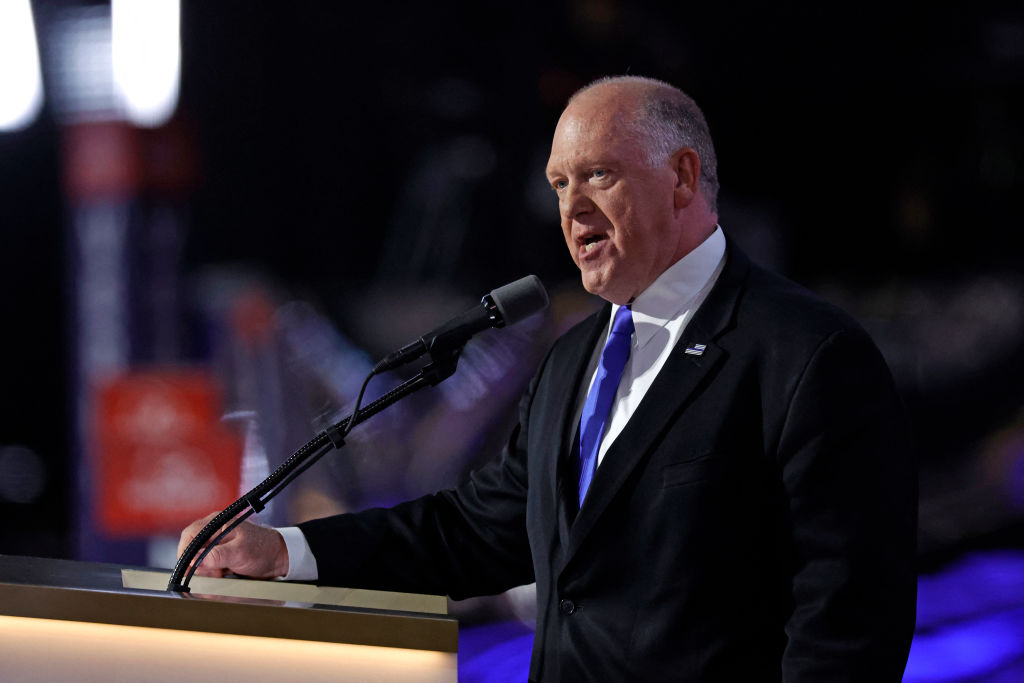TALLAHASSEE, Florida, November 6, 2008 (ENS) - Florida voters Tuesday approved an amendment to the Florida Constitution that will require the state legislature to exempt land that is permanently set aside for conservation from all property taxes. The tax exemption will apply to property taxes beginning in 2010.
Known as Amendment 4, the measure was approved with 68.4 percent of the vote - it needed 60 percent to pass.
The amendment will allow land that is being used for conservation purposes, but which has not been permanently set aside, to be taxed according to its conservation use.
The amendment also requires the legislature to provide classification and assessment of land use for conservation.
Placed on the ballot by the Florida Taxation and Budget Reform Commission, the measure won support from Governor Charlie Crist and several environmental groups.
Jeff Danter, Florida state director of The Nature Conservancy, said, "Voting ‘yes’ on Amendment 4 means that you are helping to preserve the Everglades and protecting iconic species like the Florida panther."
Danter said the amendment provides "a powerful incentive for more private landowners to engage in conserving Florida’s forests, waters and wildlife."
U.S. & World
The day's top national and international news.
"We are honored to be working alongside The Nature Conservancy to add this simple, low-cost land conservation measure to Florida’s Constitution," said Preston Robertson of Citizens for Conservation Land, the coalition supporting Amendment 4.
"By making it easier for private landowners to set aside their land for conservation," he said, "Amendment 4 will complement The Nature Conservancy’s work in preserving Florida’s natural places."
More than 80 business, community, and environmental groups endorsed Amendment 4, including diverse groups and individuals such as the Florida Chamber of Commerce, Allied Sportsmen’s Association of Florida, Bream Fishermen Association and nationally renowned naturalist Jim Fowler, a host of the popular television program Mutual of Omaha’s Wild Kingdom.
The environmentalists said that Amendment 4 is broadly supported by interest groups throughout Florida because it balances economic growth and environmental stewardship by preserving conservation land without introducing new government regulations.
Opponents included the League of Women Voters, who objected to the amendment because they said it "does not link land-use planning to conservation and would further limit the ability of local governments to obtain revenue from real estate."
In Hillsborough County, Florida, voters approved the state's largest measure, with 78 percent voting for a $200 million bond to continue Hillsborough County's program to acquire environmentally sensitive land.
The Hillsborough County Environmental Land Acquisition and Protection Program is responsible for acquiring land within the county for preservation. The program purchases endangered and environmentally sensitive lands, beaches, parks and recreational lands within the county, which encompasses the city of Tampa.
Operated in conjunction with the Parks Department and citizen committees, ELAPP coordinates efforts with other agencies; such as Florida Communities Trust, City of Tampa, City of Temple Terrace, Southwest Florida Water Management District, and Conservation and Recreational Lands Program.
In neighboring Pinellas County, voters approved a county charter amendment on environmental lands, with about 70 percent voting in favor of the measure.
The amendment requires a voter referendum before the Pinellas County Commission can sell land in county-owned preserves or management areas, remove the environmental lands designation from those properties or lease them for more than 10 years.
The charter amendment applies to 19 county environmental properties, including the Brooker Creek Preserve. It was the county's proposal to site ballfields in this preserve that energized St. Petersburg environmentalist Lorraine Margeson, who led the call for a charter amendment.
"We hope that this change in the law is a model for the state of Florida," Margeson told the "St. Petersburg Times" after Tuesday's vote. "Although it's not perfection, it's a paradigm shift in terms of voter purview in decisionmaking on preserving the environment."
In Alachua County, where the city of Gainsville is located, voters approved a measure that will increase the sales tax by half of a cent for two years to fund land conservation and park improvements.
The Wild Spaces & Public Places measure will provide about $20 million for land conservation, 86 percent of which will be for the Alachua County Forever program, and 14 percent will be for acquiring additional Gainesville nature parks.
Many of these acquisitions will attract matching funds from state and federal partners.
The measure also will provide about $20 million for recreation and parks improvement projects in every municipality in the county, as well as some Alachua County projects that can be completed within two years.
{Photo: Conservation land on private property near St. Augustine, Florida (Photo by Euphorbia)}
Copyright Environment News Service (ENS) 2008. All rights reserved.




